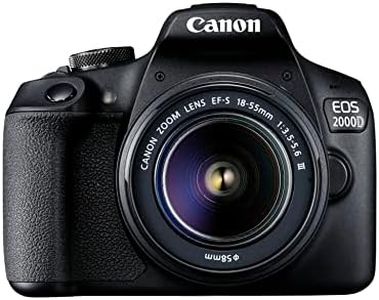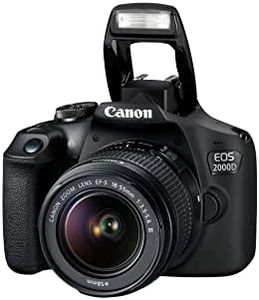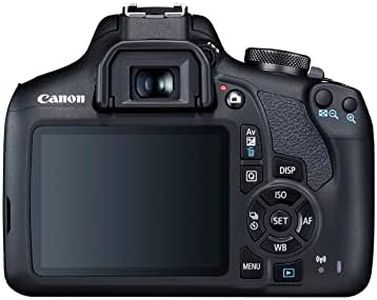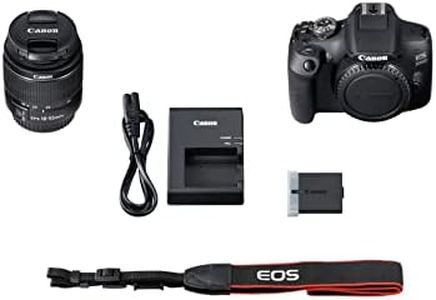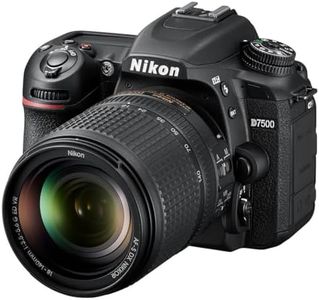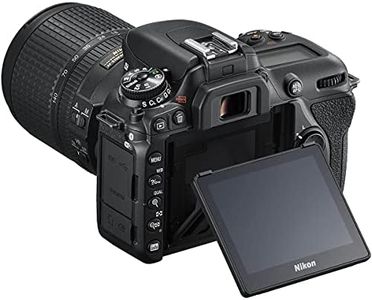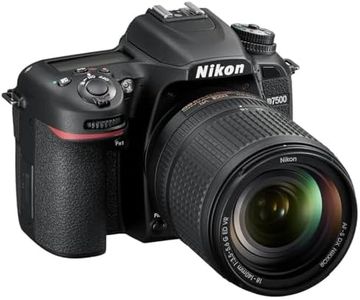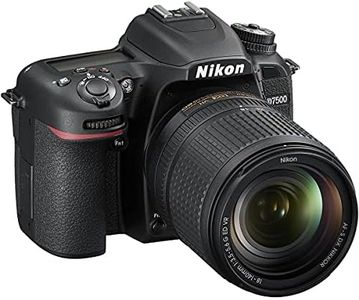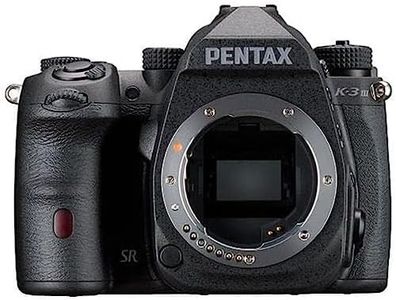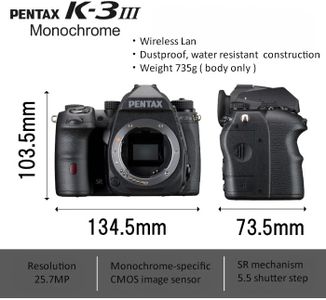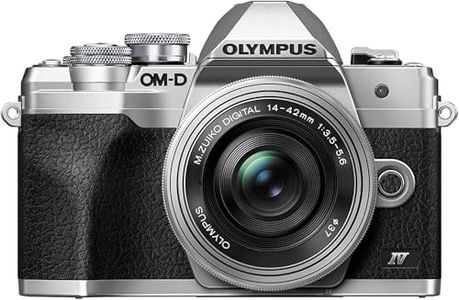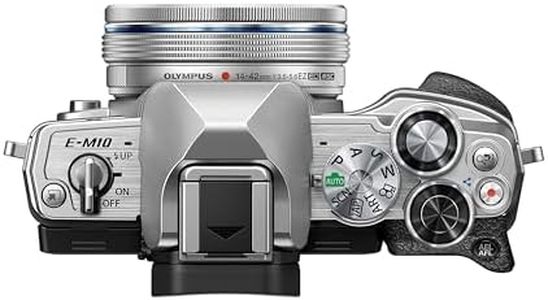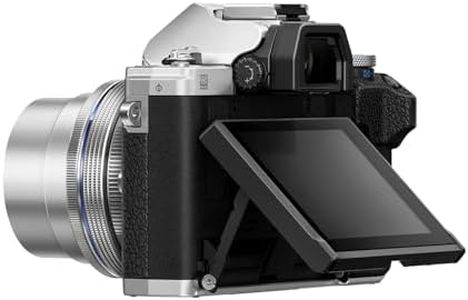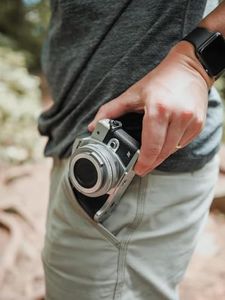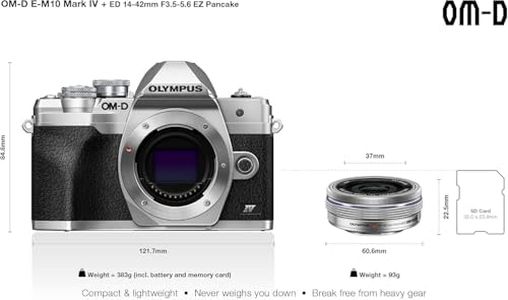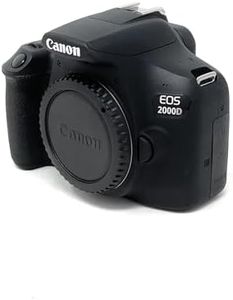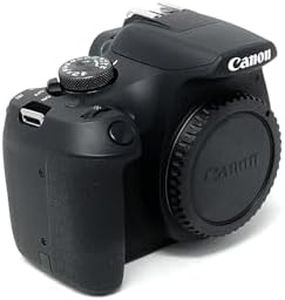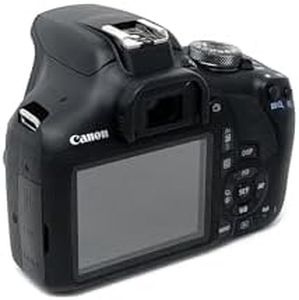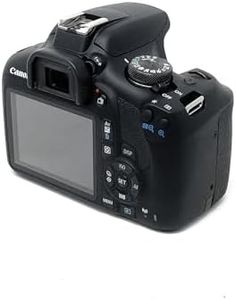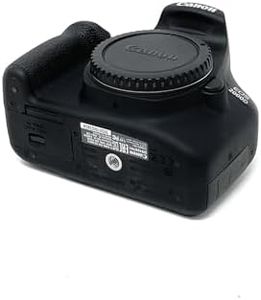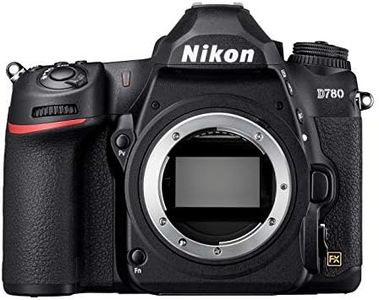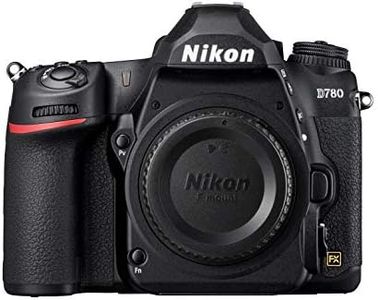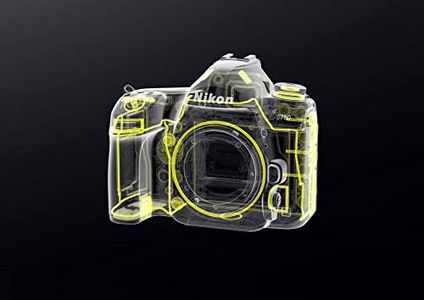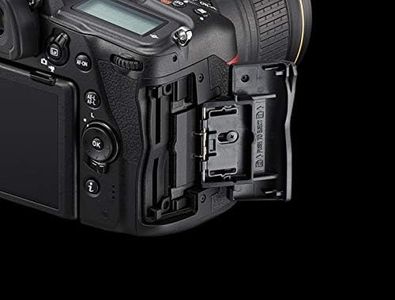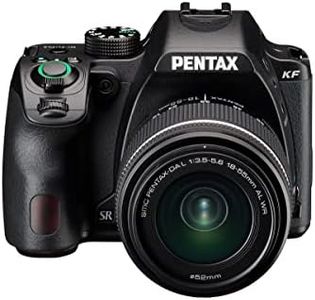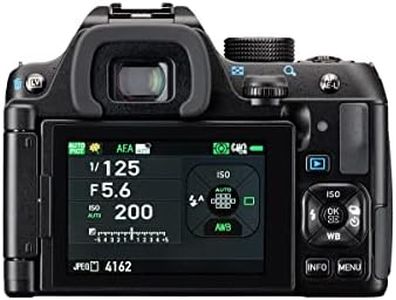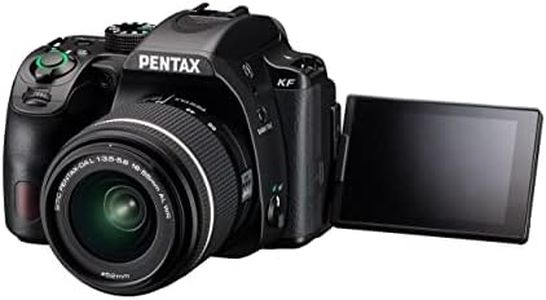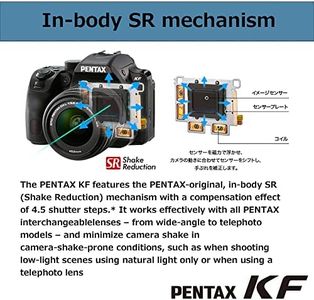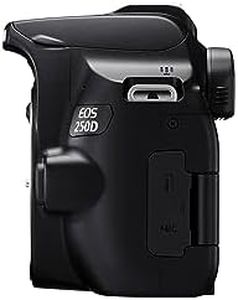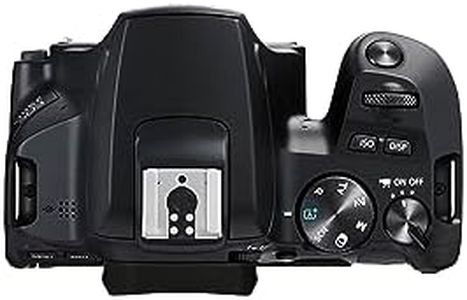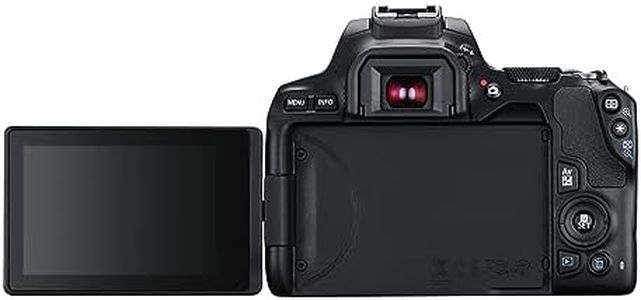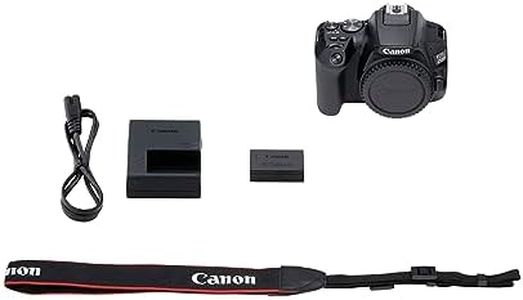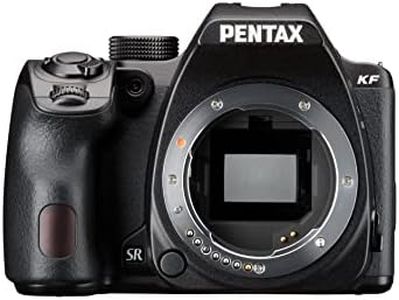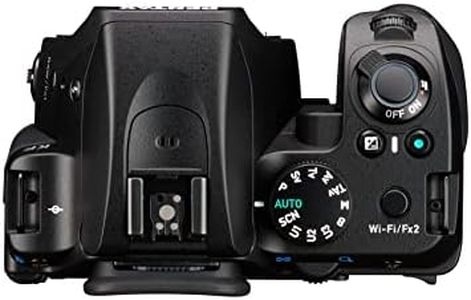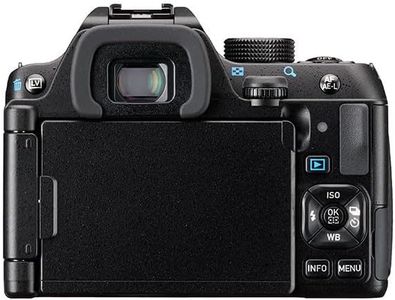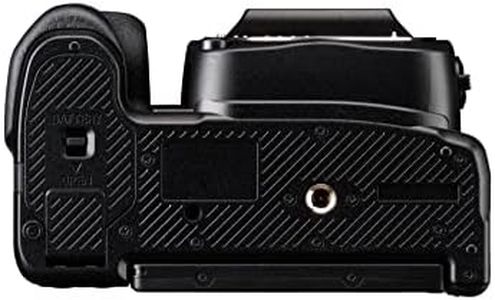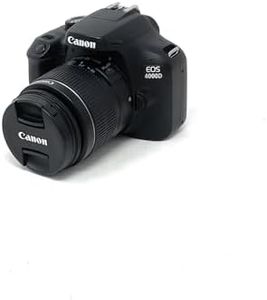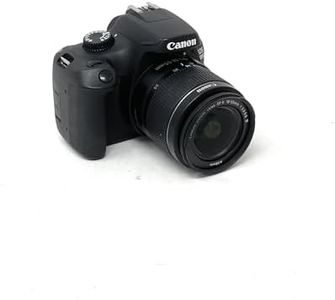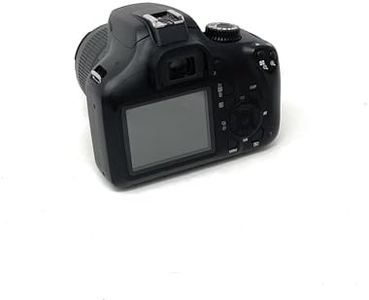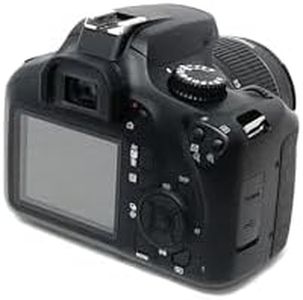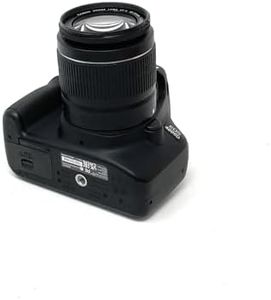We Use CookiesWe use cookies to enhance the security, performance,
functionality and for analytical and promotional activities. By continuing to browse this site you
are agreeing to our privacy policy
10 Best Dslr Cameras For Beginners
From leading brands and best sellers available on the web.By clicking on a link to a third party's website, log data is shared with that third party.
Top 10 Best Dslr Cameras For Beginners 2026 in the UK
#1
Winner
Canon EOS 2000D + EF-S 18-55mm III Lens - Easy-to-use DSLR Camera with a Versatile Lens, Ideal for Portraits and Landscapes
Canon EOS 2000D + EF-S 18-55mm III Lens - Easy-to-use DSLR Camera with a Versatile Lens, Ideal for Portraits and Landscapes
Megapixels: 24.1 MP
ISO Range: 100-12800
Autofocus System: 9-point system
Lens Compatibility: Canon EF
Size and Weight: 7.8 x 12.9 x 10.1 cm
Chosen by 1270 this week
Nikon D7500 DSLR with AF-S DX NIKKOR 18-140mm f/3.5-5.6G ED VR Lens
Nikon D7500 DSLR with AF-S DX NIKKOR 18-140mm f/3.5-5.6G ED VR Lens
Sensor Size: APS-C
Megapixels: 20.9 MP
ISO Range: up to 51200
Autofocus System: 51-point AF, 15 cross-type sensors
Lens Compatibility: AF-S DX NIKKOR 18-140mm lens
Manual Controls: Available
Size and Weight: 31.8x15.2x21.6 cm, 2.27 kg
Pentax K-3 Mark III Monochrome Body Black APS-C DSLR Camera - Field of View 100%, Optical Viewfinder, 5-Axis 5.5 Step In-Body SR, ISO 1,600,000, Weather Resistant, Max 12fps, Touch Screen
Pentax K-3 Mark III Monochrome Body Black APS-C DSLR Camera - Field of View 100%, Optical Viewfinder, 5-Axis 5.5 Step In-Body SR, ISO 1,600,000, Weather Resistant, Max 12fps, Touch Screen
Sensor Size: APS-C
Megapixels: 25.7 MP
ISO Range: 50 to 1,600,000
Autofocus System: 49 points
Lens Compatibility: Pentax K-mount lenses
Manual Controls: Aperture Priority mode
Size and Weight: 0.82 kg
Olympus OM-D E-M10 Mark IV Micro Four Thirds System Camera Kit, 20 MP sensor, electronic viewfinder, 4K video, powerful AF, Wi-Fi, silver incl. M.Zuiko Digital ED 14‑42mm F3.5‑5.6 EZ Pancake silver
Olympus OM-D E-M10 Mark IV Micro Four Thirds System Camera Kit, 20 MP sensor, electronic viewfinder, 4K video, powerful AF, Wi-Fi, silver incl. M.Zuiko Digital ED 14‑42mm F3.5‑5.6 EZ Pancake silver
Sensor Size: Micro Four Thirds
Megapixels: 20MP
ISO Range: 80-25600
Autofocus System: 121 focus points
Lens Compatibility: Micro Four Thirds
Manual Controls: Accessible
Size and Weight: 49x122x84 mm, 620 g
Canon EOS 2000D DSLR Camera Body - Black
Canon EOS 2000D DSLR Camera Body - Black
Sensor Size: APS-C
Megapixels: 24.1 MP
ISO Range: 100, 6400, 12800
Autofocus System: 9-point autofocus
Lens Compatibility: Canon EF/EF-S
Manual Controls: manual
Size and Weight: 16.6x22.2x13.8 cm, 0.48 kg
Nikon D780 Body
Nikon D780 Body
Sensor Size: full-frame
Megapixels: 24.5 MP
ISO Range: 25600 to 51200
Autofocus System: 51 focus points
Lens Compatibility: Nikon F-mount
Manual Controls: fully accessible
Size and Weight: 10x10x10 cm, 840 g
Pentax 1202 KF APS-C digital SLR camera 18-55 WR kit, dustproof weather-resistant vari-angle LCD monitor,black
Pentax 1202 KF APS-C digital SLR camera 18-55 WR kit, dustproof weather-resistant vari-angle LCD monitor,black
Sensor Size: APS-C
Megapixels: 24.24 MP
ISO Range: 100 to 102,400
Autofocus System: 11 points, 9 cross sensors
Lens Compatibility: Pentax mounts
Manual Controls: Available
Size and Weight: Over 1.5 kg
#10
Buying Guide for the Best Dslr Cameras For Beginners
Choosing a DSLR camera as a beginner can be an exciting journey into the world of photography. DSLRs offer great image quality, versatility, and control over your shots. When selecting a camera, consider what you want to achieve with your photography, whether it's capturing family moments, landscapes, or starting a new hobby. Understanding the key specifications will help you make an informed decision that suits your needs and preferences.Sensor SizeThe sensor size in a DSLR camera is crucial because it affects the image quality and depth of field. Larger sensors, like full-frame sensors, capture more light and detail, which is ideal for low-light conditions and achieving a shallow depth of field. APS-C sensors are smaller but still offer excellent image quality and are more affordable. As a beginner, consider what type of photography you want to pursue; if you're interested in landscapes or portraits, a larger sensor might be beneficial, but for general photography, an APS-C sensor is a great starting point.
MegapixelsMegapixels refer to the resolution of the camera's sensor, determining how much detail the camera can capture. Higher megapixels mean more detail, which is useful for large prints or cropping images without losing quality. However, more megapixels don't always mean better images, especially if the sensor size is small. For beginners, a camera with around 16-24 megapixels is usually sufficient for most types of photography, providing a good balance between image quality and file size.
ISO RangeISO range indicates the camera's sensitivity to light, allowing you to shoot in various lighting conditions. A wider ISO range means better performance in low-light situations, but higher ISO settings can introduce noise into your images. As a beginner, look for a camera with a decent ISO range, such as 100-6400, which will give you flexibility in different lighting environments without compromising too much on image quality.
Autofocus SystemThe autofocus system in a DSLR camera helps you achieve sharp focus quickly and accurately. A good autofocus system is essential for capturing moving subjects or shooting in challenging conditions. Cameras with more autofocus points and advanced tracking features offer better performance. As a beginner, consider a camera with a reliable autofocus system that suits your needs, whether you're interested in sports photography, wildlife, or everyday snapshots.
Lens CompatibilityLens compatibility is important because it determines the range of lenses you can use with your camera. DSLRs typically have a wide variety of lenses available, from wide-angle to telephoto, allowing you to expand your photography skills. As a beginner, start with a camera that offers a good selection of affordable lenses, such as a standard zoom lens, which is versatile for different types of photography. As you grow in your photography journey, you can invest in more specialized lenses.
Manual ControlsManual controls allow you to adjust settings like aperture, shutter speed, and ISO, giving you creative control over your photography. These controls are essential for learning and experimenting with different techniques. As a beginner, choose a camera that offers easy-to-use manual controls, so you can gradually learn how to use them effectively and improve your skills over time.
Size and WeightThe size and weight of a DSLR camera can affect how comfortable it is to carry and use, especially for extended periods. Larger cameras may offer more features but can be cumbersome, while smaller models are more portable but might have fewer advanced options. Consider your lifestyle and how often you'll be carrying the camera; if you plan to travel or shoot on the go, a lighter, more compact model might be preferable.
